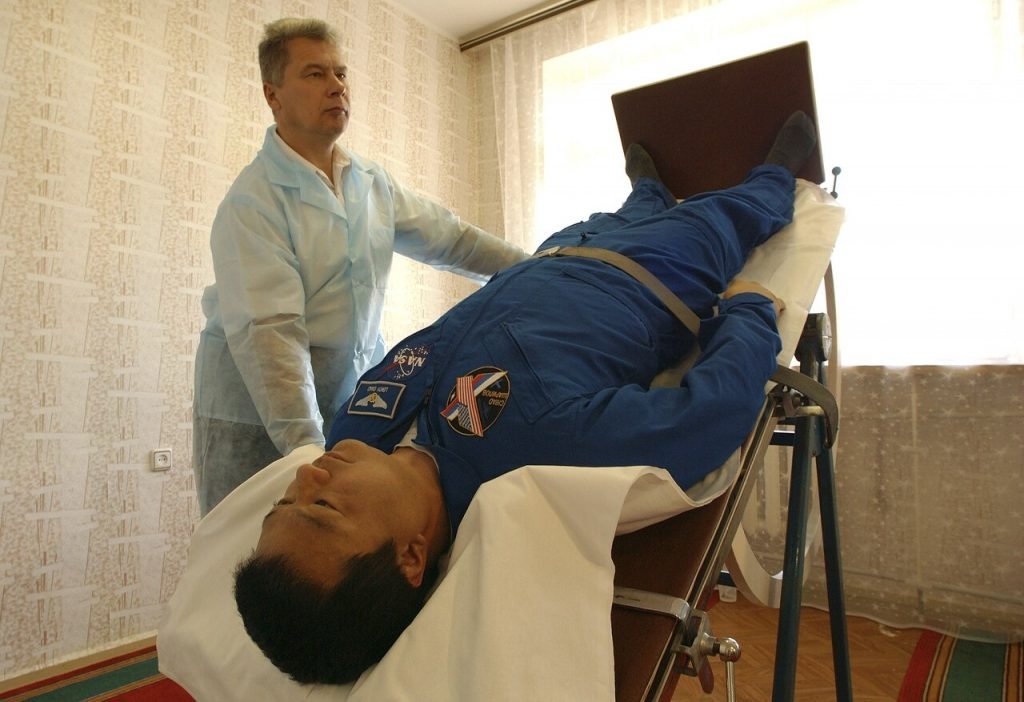For many patients, finding a specialist who truly understands autonomic dysfunction is a turning point in their journey toward better health. In this guide, we explore the top POTS clinics and specialists around the world, offering insights into where expert care is available and what to expect when seeking treatment.
Living with Postural Orthostatic Tachycardia Syndrome (POTS) can feel like navigating a maze of symptoms, misdiagnoses, and medical uncertainty. Whether you’re newly diagnosed or have been managing POTS for years, this post will help you locate trusted providers, understand the types of care available, and make informed decisions about your health.
Understanding POTS and the Need for Specialized Care
Postural Orthostatic Tachycardia Syndrome is a form of dysautonomia—a disorder of the autonomic nervous system—that affects blood flow, heart rate, and often causes debilitating symptoms like dizziness, fatigue, brain fog, and gastrointestinal issues. Because POTS overlaps with other conditions such as Ehlers-Danlos Syndrome (EDS), Mast Cell Activation Syndrome (MCAS), and Chronic Fatigue Syndrome (ME/CFS), it requires a nuanced, multidisciplinary approach.
Do you track your daily sodium intake for POTS?
Unfortunately, many general practitioners are unfamiliar with POTS, leading to delayed diagnoses and ineffective treatments. That’s why finding a clinic or specialist with deep experience in autonomic disorders is essential.

What Makes a Clinic or Specialist “Top Tier” for POTS?
- Comprehensive Autonomic Testing: Tilt table tests, QSART, and heart rate variability assessments.
- Multidisciplinary Teams: Including cardiologists, neurologists, physical therapists, and dietitians.
- Experience with Comorbidities: Familiarity with EDS, MCAS, and autoimmune conditions.
- Patient-Centered Care: Willingness to adapt treatment plans and listen to patient feedback.
- Research and Innovation: Participation in clinical trials and ongoing studies.
Top POTS Clinics and Specialists Worldwide
🇺🇸 United States
- Vanderbilt Autonomic Dysfunction Center (Nashville, TN) Renowned for pioneering POTS research and treatment protocols.
- Cleveland Clinic (Ohio) Offers multidisciplinary care through its Neurology and Cardiology departments.
- Mayo Clinic (Rochester, MN and other locations) Known for comprehensive autonomic testing and individualized care.
- Stanford Autonomic Disorders Program (California) Focuses on complex cases and research-driven treatment.
- Children’s National Hospital (Washington, D.C.) Excellent for pediatric POTS care.

🇨🇦 Canada
- Toronto General Hospital – Autonomic Unit Offers testing and treatment for dysautonomia including POTS.
🇬🇧 United Kingdom
- National Hospital for Neurology and Neurosurgery (London) Home to the Autonomic Unit, a leader in European POTS care.
- Queen Elizabeth Hospital (Birmingham) Known for its autonomic nervous system specialists.
🇩🇪 Germany
- University Hospital Erlangen Offers autonomic testing and treatment in a research-rich environment.

🇦🇺 Australia
- Baker Heart and Diabetes Institute (Melbourne) Conducts research and offers care for autonomic disorders.

POTS Care in the Rest of the World | What to Do If You’re Outside Major Centers
While the United States, UK, Canada, Germany, and Australia host some of the most recognized POTS clinics, millions of patients live in regions where autonomic specialists are scarce or underrecognized. If you’re in Asia, South America, Africa, or other underserved areas, navigating care can be more challenging—but not impossible.
Asia
In countries like Japan, India, and Taiwan, awareness of POTS is growing, though terminology may differ. For example, in Japan, dysautonomia is often referred to as 自律神経失調症, and some patients report success with Eastern medicine approaches like 漢方 (herbal medicine) alongside Western treatments. Clinics in Tokyo, Osaka, and Wakayama have autonomic specialists, though English-speaking providers may be limited.
In India, Dr. Sarath Menon in Kochi is one of the few known specialists treating autonomic dysfunction. Taiwan’s Dr. Li-Chu Hsu in Taipei is also recognized for her work in neurology and autonomic disorders.
South America
Access to specialized POTS care is limited, but there are emerging resources. In Argentina, Dr. Raul Norberto Garillo in Buenos Aires is listed among autonomic specialists. Patients in Brazil, Chile, and Colombia may need to seek care through university hospitals or neurologists familiar with dysautonomia. Spanish-language patient communities and advocacy groups can be helpful for referrals and support.
Africa
In Africa, POTS awareness is still developing. South Africa’s ME/CFS Foundation provides education and resources for patients with overlapping conditions like POTS. While autonomic testing may not be widely available, some neurologists and cardiologists are beginning to recognize and treat POTS symptoms, especially in urban centers like Cape Town and Johannesburg.
Middle East and Other Regions
In Israel, Dr. Yehuda Shoenfeld and Dr. Jacob Giris in Tel Aviv are known for their work in autoimmune and autonomic disorders. In Italy, Spain, and Portugal, several specialists are listed through Dysautonomia International’s physician directory, often affiliated with university hospitals.
What to Do If You’re in an Underserved Region
- Use Global Directories: Sites like Dysautonomia International’s physician map can help you locate specialists worldwide.
- Seek Virtual Consultations: Many top-tier U.S. and European clinics offer telehealth appointments, especially for initial evaluations or second opinions.
- Educate Your Local Providers: Bring research articles, symptom logs, and diagnostic criteria to help guide your care.
- Connect with Patient Communities: Online forums like r/POTS on Reddit and regional Facebook groups often share local leads and tips.
- Explore Functional Medicine: In areas without autonomic specialists, functional neurologists or integrative medicine practitioners may offer symptom-based support.
Note on Clinic Availability
The landscape of POTS care is constantly evolving. Clinics may change locations, restructure services, or close entirely, while new specialists and programs continue to emerge. While we strive to keep this list current, it may not reflect the most recent updates. We encourage readers to verify details directly with each clinic and consult trusted directories like Dysautonomia International or Standing Up to POTS for the latest information.
How to Choose the Right Specialist for You
Choosing a POTS specialist isn’t just about geography—it’s about fit. Consider the following:
- Do they offer remote consultations or telehealth?
- Are they familiar with your comorbid conditions?
- Do they work with physical therapists or nutritionists?
- Can they help coordinate care with your local providers?
Joining patient communities like Dysautonomia International or POTS UK can also help you find peer-reviewed recommendations and real-world feedback.
Frequently Asked Questions
What is POTS and how is it diagnosed?
POTS is a form of dysautonomia characterized by an abnormal increase in heart rate upon standing. Diagnosis typically involves a tilt table test or active stand test.
Can POTS be cured?
There is no known cure, but symptoms can often be managed effectively through lifestyle changes, medications, and physical therapy.
Are there pediatric POTS specialists?
Yes, hospitals like Children’s National in Washington, D.C. specialize in pediatric autonomic disorders.
What kind of doctor treats POTS?
Neurologists, cardiologists, and internal medicine specialists with training in autonomic disorders are best equipped to treat POTS.
Is POTS related to Ehlers-Danlos Syndrome?
Yes, many patients with EDS also have POTS due to connective tissue abnormalities affecting blood vessels.
Can I get POTS care remotely?
Some clinics offer telehealth consultations, especially for follow-up care or initial evaluations.
What tests are used to diagnose POTS?
Tilt table tests, heart rate monitoring, QSART, and blood volume assessments are commonly used.
How long does it take to get diagnosed?
Diagnosis can take months or even years due to symptom overlap and lack of awareness among general practitioners.
Are there support groups for POTS patients?
Yes, online communities like Dysautonomia International and regional Facebook groups offer support and resources.
What treatments are available?
Treatment may include beta blockers, fludrocortisone, IV saline, compression garments, and exercise programs.
Final Thoughts
Finding expert care for POTS can be a transformative step in your health journey. While the condition is complex and often misunderstood, the right clinic or specialist can offer clarity, support, and a path forward. Whether you’re seeking care in the U.S., UK, Canada, Australia, or beyond, prioritize providers who understand the nuances of autonomic dysfunction and are committed to patient-centered care.
What is your favorite recumbent exercise?




